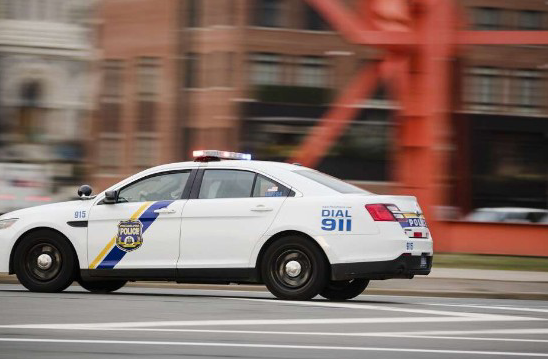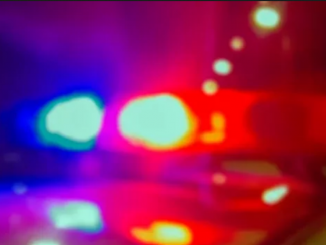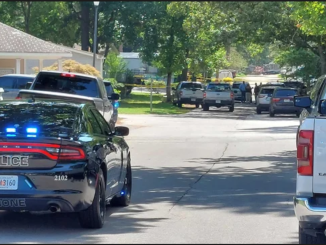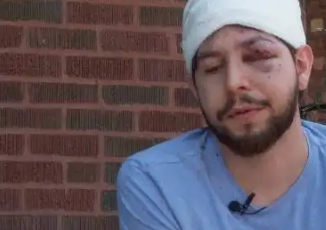
“At CIA, we do hard stuff.”
That’s what I said last week to the 200 Club of Greater Miami. It’s a foundation dedicated to providing assistance to families of Miami first responders killed in the line of duty. I used the same line when speaking to some Philadelphia officers earlier this month. They are facing an alarming rise in crime in the nation’s sixth-largest city. But make no mistake, officers are doing very “hard stuff.”
Following my memorable visit last September , I returned to Philly to speak with the officers of the 24th and 25th districts. Their patrol areas include Kensington. Frankly, Kensington looks like a war zone. Its heavy homeless and addicted populations walk around under the influence. The drug trade is rampant. It is as depressing a scene as anything I saw during my time with the CIA in Iraq and Afghanistan. Philly has already seen 400+ murders and nearly 2000 nonfatal shootings. In the 72-hour period when I was there, there were 39 nonfatal shootings and nine homicides.
Still, I relish my time sharing leadership thoughts with police officers. I feel I can help them succeed in crisis situations. And at the most basic level, I pass on the message that I appreciate what they do. Policing is an indispensable institution, much like my old job at the CIA. Your failures are plastered all over the front pages of the media, yet successes are left in the shadows. Sometimes a simple “thank you” can go a hell of a long way.
Philly officers are a cross-section of the city. They are not aloof. They don’t commute in from out of state. The most impressive officer I met was an African American female supervisor. A veteran of undercover work. It’s tough, dangerous duty. I asked her simply, “Why do you do it?” Her response moved me. “To help people in this community. There are good people here. Even in the worst areas.” I think back to her often when I get discouraged by what is happening in Philly. She is a Philly native. She is not leaving. But she is certainly not happy with what she is seeing on the streets.
Some officers I met are demoralized and tired. Some feel underappreciated. Some are overworked. Yet the biggest issue was perhaps the most frustrating to hear — they feel they are unable to fight crime because of a lack of overall support from various local bodies. Recruitment and retention is an issue. Philly PD has approximately 500 vacancies out of a workforce of 6,000; the last class of rookies had only 70 officers. Schedules are an issue. Philly officers get three to four whole weekends off a year. Fewer officers means tougher schedules. In turn, some officers are leaving early.
What are the fixes?
Most immediately, we need greater public support for law enforcement. Cops are humans. They see a society in which some have turned on them. Do bad cops exist? Absolutely. I have yet to meet an officer in Philly who defends what occurred to George Floyd. They are furious at images of police brutality. Yet officers as a collective received the brunt of the public’s anger over that incident. The narrative has to change. Instead of “defund the police,” we need a proactive call for police reform and efforts to fight crime with smart policies.
Our elected officials need to support the police. In Philly, the officers feel at times that they don’t have that support. Their relationship with District Attorney Larry Krasner is strained. That’s not a recipe for success.
Krasner calls himself a social justice crusader, not a law enforcer. Thus, right off the bat, he misses the mark with the police. Within a month of taking office, Krasner fired 31 prosecutors. Hundreds of years of experience went out the door. In the view of officers, the DA’s policies lead to more crime. That is what I heard time and again. If you are caught with a gun in Philly, even multiple times, there is not much accountability or stiff sentence to go with that crime. The police are at times incredulous. But the DA was elected, so what can you do until the next election? The bottom line I heard from the officers goes like this: “The word on the street is if you get caught with a gun, you probably won’t go to jail.”
It’s not just about guns. Retail thefts are not being prosecuted. Krasner announced that for retail thefts under $500, he simply wouldn’t prosecute as state law is written. Per the officers, you can commit these crimes over and over and over. This is likely why WAWA is leaving. There are people in Philly who have committed dozens of thefts sometimes totaling six figures worth of merchandise, and they are just not in jail. The perception also exists that Krasner at times may be more interested in locking up officers than fighting crime. He has gone after over 50 cops for various offenses. But only a few were actually prosecuted. The problem is that this has fostered a palpable fear in the department about doing the job. Officers told me that if they’re involved in a violent confrontation with a suspect with a gun, for example, they are more concerned about Krasner prosecuting them for a use of force complaint versus the suspect for possession of a firearm.
The citizens of Philly — black, white, and brown alike — are alarmed by the rise in crime. Elections do matter. Not just state or federal. Local. We need to elect local leaders who take policing seriously while fostering relationships between the police and the community that are inclusive and not confrontational. We also need police leaders to be vocal during these crime waves. After three SWAT officers were shot earlier this month, Philly Police Chief Danielle Outlaw came out and essentially said that “we can’t keep letting criminals off the hook, to come back and commit crimes.”
That’s the right message.
* Article from: The Washington Examiner


